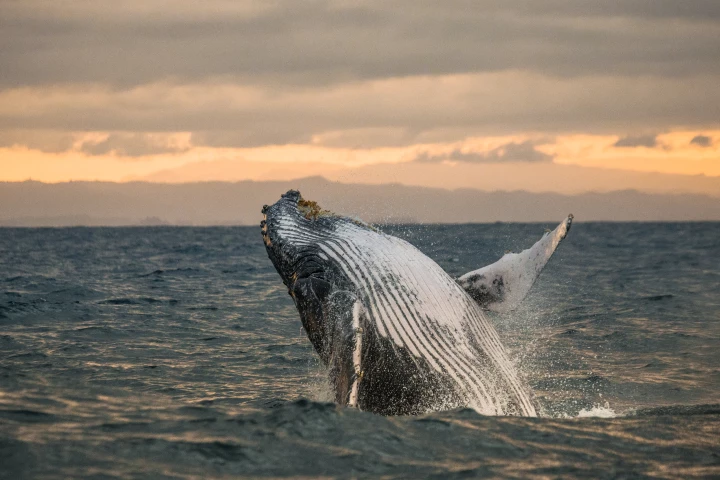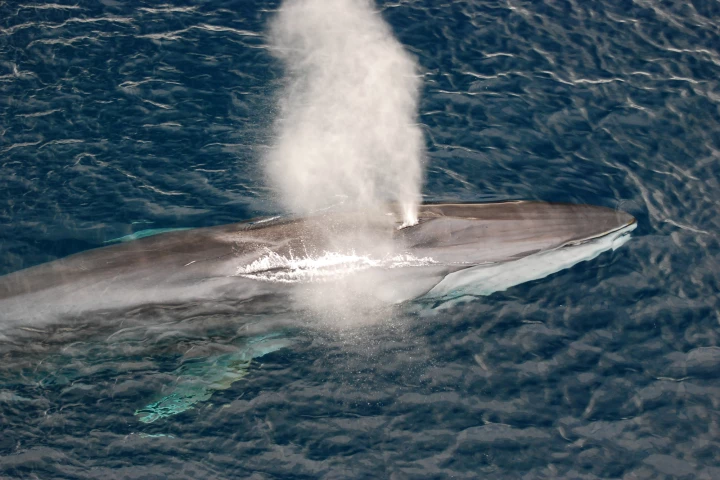Whale
-
For the first time, we know more than we ever expected to know about the sex lives of the majestic beluga whale. It's complicated, to say the least, but it also shows just how strategic nature is at keeping an isolated group of animals alive.
-
For the first time ever, a unique cooperative hunting arrangement between dolphins and orcas has been documented. Researchers believe killer whales find salmon by tailing dolphins, who in turn benefit from bite-sized fish pieces.
-
Humpback whales may look like gentle giants, but each year they undertake nature's most extreme crash diet, shedding 36% of their mass in less than two months. New insights into their epic annual swim has identified just how huge their fat loss is.
-
Whales are not only the biggest animals on the planet, but they’re among the longest-lived, too. A new analysis reveals that right whales can live for more than 130 years, almost twice as long as previously thought.
-
The first-ever video of a blue whale nursing her calf has been released, as well as stunning footage of the species' intimate interactions. It's the first time these famously elusive animals have had their personal lives captured in this way.
-
Meeting aliens rarely goes well for humanity in movies. Scientists have been practicing by trying to chat to whales in their own language – and judging by early results, we should probably beef up security around the Eiffel Tower and the White House.
-
Already armed with an impressive sonar system, new research reveals that dolphins have an extra ability that evolves as they mature in the area where their baby whiskers once were. The super sense may help them navigate and find hidden food sources.
-
Play is a vital part of animal behavior, helping to form social structures and bonds, develop cognitive function and enhance physical abilities. Now, it's believed whale play with seaweed to scrub off dead skin cells and parasites as they migrate.
-
Dinosaur fans will already be familiar with the ichthyosaurus, a prehistoric marine reptile that resembled a dolphin in appearance. Well it now seems that one of its close relatives, named Hupehsuchus, fed much like a modern-day baleen whale.
-
The blue whale has long been considered the largest animal to have ever existed, even dwarfing the biggest known dinosaurs. But now a new species threatens to steal the crown, and upends what we thought we knew about whale evolution.
-
Global warming has caused many large whales to move from warmer waters, increasing the risk of being struck by ships. Researchers have used existing fiber-optic cables to track fin whales in real time, which may reduce the incidence of ship strikes.
-
Understanding whales has historically been a time-consuming and difficult task for scientists, not least because these magnificent mammals spend about 95% of their days underwater. Now, drone technology is offering a new frontier of vital research.
Load More











